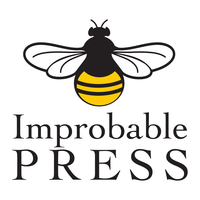By Narrelle M Harris

So many people expound so many rules about writing – and so much of it can be contradictory – that it’s not always easy to tell good advice from bad. Two reminders of this came my way recently.
The first was a Facebook post by a writer I follow. Full of irritation at absolutist ‘rules’, he reeled out the ‘common wisdom’ writing advice, full of ‘never do this’ and ‘don’t do that’. The comments were full of people citing beloved works which broke those rules with enormous success.
The second was when I read Daphne Du Maurier’s Jamaica Inn for the first time, and its stunning opening description of the storm on the moor as a coach is taking Mary Yellan to live with her only surviving relative, on the coastline beyond the moors.
Writing Rules: Absolutes Are Nonsense
I’ve been guilty of expounding Writing Law – never open with a description of the weather! – and here was a classic novel proving why such absolutes are nonsense. The external storm at the beginning of this book draws the reader immediately into Mary’s internal world. Her mother’s death has thrown her clear of the safe and comfortable life she’s always known into a dangerous and threatening life with her aunt and brutish uncle and the dreadful secret they keep.
The weather of Jamaica Inn is not, in fact, just the weather. It has character and meaning, and its narrative role as a story opening feeds into descriptions of the landscape, the weather and the frightening world Mary now inhabits.
Jamaica Inn is a terrific book, and I appreciated the reminder that stating absolutes as advice is not very helpful. It also made me consider why I’ve always been wary of introducing readers to a story through meteorology.
More
Oh What a Feeling—Holding Your Own Book in Your Hands
Nothing Human is Alien to Me (Terence Knew)
Book Peek: Ghost Story by G.V. Pearce
I think that often, opening a scene with the weather or a description of the landscape is a literary substitute for the establishing shot in a film or TV show. A lot of science fiction shows have an establishing shot of a planet or space station from space (which you notice if you’re skipping the ads and start looking for the star field as the next point where the action will start). It gets very samey, but it’s useful to know when to hit Play again.
The Grammar of Establishing Shots
Establishing Shots seem to be a technique some writers have picked up, and understandably – I have a very visual imagination myself, and translating the movie in my head to the page is enormous fun.
Using the film grammar of establishing shots, cutaways, flashbacks and so on is perfectly natural (especially as a lot of that ‘grammar’ was first derived from their counterparts in written fiction) but the full circle return to the written word doesn’t always work.
A quick “Exterior: A house in a thunderstorm” or “Exterior: A purple planet orbiting a cloudy moon” may give a viewer a moment to reorient their brains from car commercials back to the story they’ve been watching, but it’s not always the best way to draw a reader into a book.
Rather than establishing the setting, I think a story opening needs to establish something of the essence of the book – its characters or themes, some essential new or strange thing about the world we’re about to inhabit or the people whose journey we’re about to share.
More
On Actually Doing
Craving Dark Cheer (Everyone Loves a Cryptid)
Writing That Second Book
The edict against opening with the weather – I’m assuming it’s not just me – surely reflects the disdain with which ‘It was a dark and stormy night’ is usually greeted. The much-mocked opening to Edward Bulwer-Lytton’s 1830 novel Paul Clifford is held up as an example of what not to do. Perhaps the paragraph continues and redeems the insipid opening.
Contrast this, however, with Orwell’s 1984: “It was a bright cold day in April, and the clocks were striking thirteen,” or with the opening paragraph of Jamaica Inn.”
5 Better Writing Questions
In the end, like all advice, “never start with the weather” is only as good as its context. Use the weather or not, as suits your narrative purpose. Better questions about the opening to your book, or to each chapter of the narrative, are:
* What do I want this sentence to convey?
* How will this sentence or paragraph lead my reader to the next?
* How does it engage them?
* Does it evoke curiosity?
* What necessary elements does it convey about this world, its people, and the central conflict?
I say, launch into the book with any damn thing you please, be it dialogue, a strange contrast, a conflict that’s a microcosm of the whole, or even the weather. As long as it’s doing its job of leading your reader, step by step, into the world you’ve created for them.
Narrelle M Harris writes crime, horror, fantasy, romance and erotica. Her 30+ works of fiction, including a dozen novels, have been published in Australia, US, Croatia and the UK. Her work for Improbable Press includes the Holmes/Watson romances The Adventure of the Colonial Boy and A Dream to Build a Kiss On. This essay was originally published on Narrelle's Patreon.
